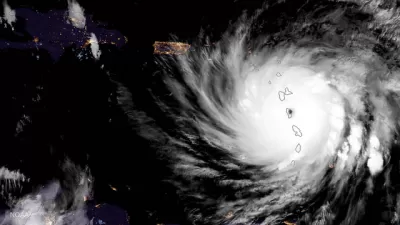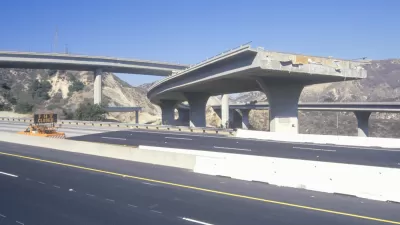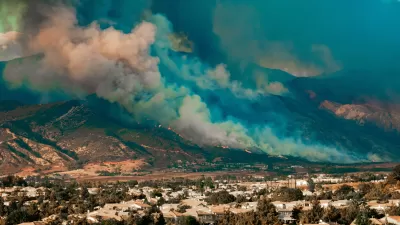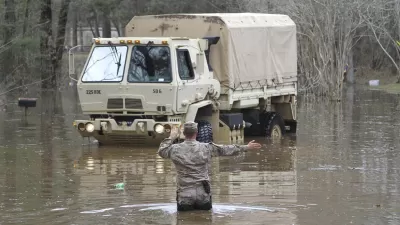Climate change might not allow the relief from the pandemic that many have been hoping for as the country enters the summer months, as evacuations during the hurricane, tornado, and fire seasons will take on new elements of risk.

Hurricane season officially began on June 1, adding another layer to a world full of concern. Forecasters have predicted an active hurricane season. Two articles published on June 1 explored the risks associated with the onset of hurricane season during the Covid-19 pandemic.
James Bruggers and Amy Green write for Inside Climate News about the efforts of Florida officials to prepare for extreme weather events and educate the public as the coronavirus drastically shifts calculations about how to respond to risks.
There's now a chance for one disaster to layer upon another. Many lives could be lost: first, from powerful winds, storm surges and flooding, and then through the spread of the coronavirus in cramped public shelters following mass evacuations. Evacuees might pass the virus to friends and relatives who take them in, or get infected themselves in those new surroundings.
One of the most concerning sources of potential confusion, according to the article, are questions about how to evacuate during a pandemic—people might choose to stay home instead of risking exposure to the coronavirus. "Even without a pandemic, mass evacuations can be logistical nightmares, clogging freeways, causing traffic accidents and depleting gas stations of fuel,"
Another article, by Dan Goldberg and Brianna Ehley, places hurricane season in context of other seasonal environmental threats, like tornado season and fire season.
"Officials from Florida to Missouri are hurriedly rewriting their disaster plans, worried that crowding large groups of evacuees in shelters could spread coronavirus during what’s expected to be a busy hurricane and tornado season," according to that article.
"Though President Donald Trump sees the summer as a time of economic revival, emergency management officials fear a terrible combination of natural disasters could lead to a fresh spread of the coronavirus — and that the pandemic could, in turn, set back their work," add Goldberg and Ehley.
The pandemic has added a massive layer of complexity to resilience planning, because no one in the United States has planned for an emergency in the midst of pandemic before.
FULL STORY: Hurricane Season Collides With Coronavirus, as Communities Plan For Dual Emergencies

Alabama: Trump Terminates Settlements for Black Communities Harmed By Raw Sewage
Trump deemed the landmark civil rights agreement “illegal DEI and environmental justice policy.”

Planetizen Federal Action Tracker
A weekly monitor of how Trump’s orders and actions are impacting planners and planning in America.

Why Should We Subsidize Public Transportation?
Many public transit agencies face financial stress due to rising costs, declining fare revenue, and declining subsidies. Transit advocates must provide a strong business case for increasing public transit funding.

Understanding Road Diets
An explainer from Momentum highlights the advantages of reducing vehicle lanes in favor of more bike, transit, and pedestrian infrastructure.

New California Law Regulates Warehouse Pollution
A new law tightens building and emissions regulations for large distribution warehouses to mitigate air pollution and traffic in surrounding communities.

Phoenix Announces Opening Date for Light Rail Extension
The South Central extension will connect South Phoenix to downtown and other major hubs starting on June 7.
Urban Design for Planners 1: Software Tools
This six-course series explores essential urban design concepts using open source software and equips planners with the tools they need to participate fully in the urban design process.
Planning for Universal Design
Learn the tools for implementing Universal Design in planning regulations.
Caltrans
Smith Gee Studio
Institute for Housing and Urban Development Studies (IHS)
City of Grandview
Harvard GSD Executive Education
Toledo-Lucas County Plan Commissions
Salt Lake City
NYU Wagner Graduate School of Public Service





























